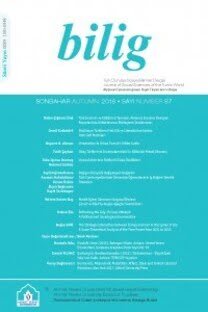Economic Implications of Turkey’s Regional Integration with its Neighborhood*
Economic Implications of Turkey’s Regional Integration with its Neighborhood*
This paper analyzes the impact of Turkey’s regional integration with the neighbourhood in an applied general equilibrium framework. The standard GTAP model has been extended to address the two main components of Turkey’s possible integration: mutual elimination of import tariffs and free movement of labor among regions. The results suggest that all regions (Turkey, Russia, Former Soviet Union and the Middle East) would experience welfare gain under trade liberalization policy reform. Labor mobility does not cause considerable changes in real GDP (less than 0.1 percent) through in- creasing real wages in the labor exporting regions.
___
- Armington, Paul (1969). "A Theory of Demand for Products Distin- guished by Place of Production". IMF Staff Papers 16. 159-178.
- Babacan Mehmet (2010). Whither Axis Shift: A Perspective From Turkey's Foreign Trade. SETA Policy Report. November. Report No: 4.
- Elitok, Secil and Thomas Straubhaar (2010). "Turkey: Change from an Emigration to an Immigration and Now to a Transit Migration Country". Hamburg Institute of International Economics. HWWI Policy Paper. 3-16
- Erzan, Refik (2009). The Impact of the Global Crisis on Illegal Migration and Remittances: The Turkish Corridor. CARIM Analytic and Syn- thetic Notes 2009/38. Robert Schuman Centre for Advanced Stud- ies: Fiesole/Florence (EUI).
- Dimaranan, B.V. and R.A. McDougall (2006). Global trade, assistance, and production: The GTAP 6 Data Base. Center for Global Trade Analysis: Purdue University.
- Hertel, W. Thomas (ed.) (1997). Global Trade Analysis: Modeling and Applications. Cambridge: University Press.
- Kirisci, Kemal, Nathalie Tocci, and Joshua Walker (2010). A Neighbor- hood Rediscovered (Turkey's Transatlantic Value in the Middle East). Washington DC: German Marshall Fund of the United States (Brussels Forum Paper Series). 21.
- Mansoor, Ali., Quilin, Bryce, (2006). Migration and Remittances: Eastern European and the Former Soviet Union. Washington DC: The Worldbank.
- TurkStat, Turkish Statistical Institute, www.turkstat.gov.tr (08.06.2011).
- United Nations: Population Division Washington 2010. http://esa.un.org/UNPP/ (08.06.2011).
- SUMMER 2013 / NUMMER 66
- Walker W. Joshua (2007). "Learning Strategic Depth: Implications of Tur- key's New Foreign Policy Doctrine". Insight Turkey 9 (3): 32-47
- Walmsley, Terrie and Alan Winters (2005). "Relaxing The Restrictions on the Temporary Movement of Natural Persons: A Simulation Analy- sis". Journal of Economic Integration 20 (4): 688-726.
- Walmsley, Terrie, Alan Winters and Syud Amer Ahmed (2007). Measur- ing The Impact of the Movement of Labor Using A Model of Bilateral Migration Flows. GTAP Technical Paper No. 28. Center for Global Trade Analysis. Purdue University, West Lafayette, IN, USA.
- Walmsley, Terrie, Syud Amer Ahmed and Christopher Parsons (2005). The Impact of liberalizing labor mobility in the Pacific region. GTAP Working Paper No.31. revised 2009.
- _____, (2006). The GMig2 Data Base: A Data Base of Bilateral Labor Mi- gration, Wages and Remittances. GTAP Research Memorandum 6. Center for Global Trade Analysis. Purdue University, IN, USA.
- ISSN: 1301-0549
- Yayın Aralığı: 4
- Başlangıç: 1996
- Yayıncı: Ahmet Yesevi Üniversitesi Mütevelli Heyet Başkanlığı
